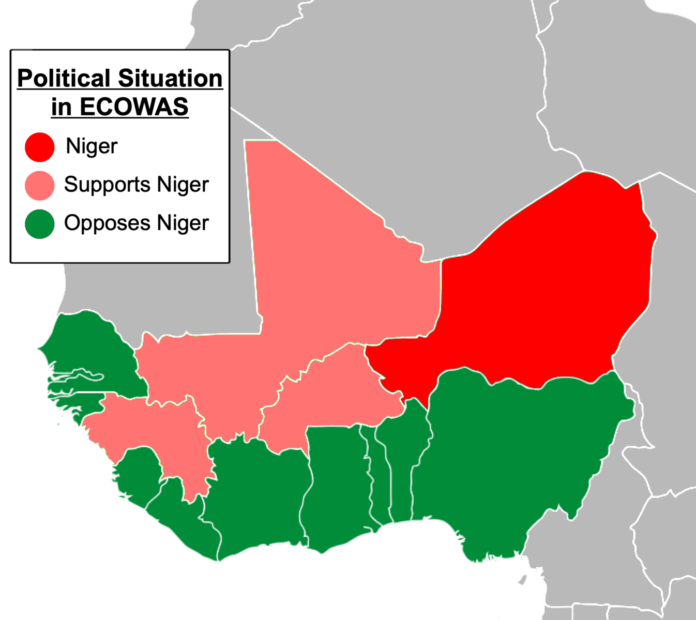The military takeover in Niger on 7/26/23, which led to the ousting of democratically elected President Mohamed Bazoum, has drawn significant attention from global organizations and international leaders.
The military coup in Niger was led by General Abdourahamane Tchiani, the head of Niger’s presidential guard, and other armed forces members. On a fateful Friday (7/28/23), they declared themselves the head of the transitional Niger government, naming it “the National Council for the Safeguard of the Homeland.” However, the coup was met with swift condemnation from organizations and international leaders, including unions like ECOWAS (Economic Community of West African States).
ECOWAS leaders held an extraordinary summit in response to the coup and issued an ultimatum to General Abdourahamane Tchiani and his fellow coup leaders. They’ve been given 7 days to step down and reinstate President Mohamed Bazoum. Failure to comply within the timeframe would lead to a threat to the force. ECOWAS also took immediate actions, including closing borders, instituting a no-flying zone, and imposing assets freeze and travel bans on coup involved and their families.
President Mohamed Bazoum’s election in 2021 marked Niger’s 1st peaceful power transfer. His government was hailed for producing improvements in education, public health, security, and economic outlook compared to neighboring countries like Mali and Burkina Faso. However, despite these successes, Niger, like many other West African nations, continued to face challenges related to economic growth and democratic institutions.
The military coup in Niger was the fifth successful coup since the nation’s independence from France in 1960. Unlike some other African countries, Niger witnessed vociferous support for Bazoum’s government. The coup has raised concerns about the stability of the country and what lies ahead for its citizens. The fate of President Mohamed Bazoum remains uncertain as he continues to be held hostage under house arrest by the coup leaders.
The takeover in Niger is part of a troubling trend of military coups in Africa. Over the past three years, several African countries, including Burkina Faso and Guinea Bissau, have experienced coup attempts or successful coups. The rise in military interventions has raised concerns about the region’s democratic norms and the impact on stability and development.
The international community has responded firmly to the coup in Niger. France, for instance, has suspended all its developmental aid and any budget support actions to Niger, demanding Bazoum’s immediate reinstatement and release. The EU has also withdrawn funding and military support, citing an “unacceptable attack on the integrity of Niger’s republican institutions.”
ECOWAS authorities are actively engaging in negotiations with General Abdourahamane Tchiani to persuade him to relinquish power and reinstate President Bazoum. The economic body is also considering imposing sanctions against Niger as a form of leverage, although specific measures have not been disclosed.
Military coups have a long history in Africa, back to the post-independence era. Some coup leaders have denied their actions as coups, attempting to legitimize their authority. The rise in military interventions is a matter of concern for the continent’s stability and development.
Image is licensed under the Creative Commons Attribution-Share Alike 4.0 International license and was created by DinoSoupCanada.









